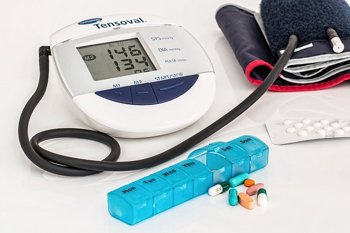Preventing cardiovascular diseases through lipid therapy modification
Wednesday, 7 August 2024

Background
Lakeside Healthcare Group, a multi-site GP partnership in Cambridgeshire, Lincolnshire and Northamptonshire, secured funding to review more than 1,000 at-risk patients for primary and secondary prevention of cardiovascular disease (CVD). They asked NHS Midlands and Lancashire CSU (MLCSU) to identify high-risk patients, offer lifestyle advice, and undertake remote clinical reviews to optimise their lipid therapy using NICE-approved pathways.
Action
We developed a standard operating procedure incorporating standardised review templates, structured clinical vocabulary, and treatment recommendations in-line with the latest NICE pathways, guidance and evidence.
We used pathway searches to identify and risk-stratify patients – to determine the most appropriate intervention and care management based on their cardiovascular status, level of risk and priority. High-risk patients were prioritised and offered remote consultations with a pharmacist. A patient-centred approach and shared decision-making principles resulted in patients being offered lifestyle advice, compliance advice, and/or a review of their lipid therapy. The team were keen to improve prevalence coding and accuracy of information in practice registers, and to equip the PCN team with the tools and processes to continue identifying and reviewing at-risk patients.
Impact
1,311 patient reviews were completed from October 2021 to November 2022 – resulting in the optimisation of lipid therapy for 72 patients. 128 patients received lifestyle modification advice, and 15 were advised around their current lipid medications.
A patient satisfaction survey was offered to 137 patients of which 65% stated their experience with their lipid medication review was either good or very good.
Adopting a systematic strategy to identifying primary and secondary prevention CVD patients who require optimisation of lipid-modification therapy contributes significantly to reducing CVD cases. It improves population health, reduces health inequalities, and mitigates against escalating demand and costs leading to unsustainable pressures on the health and care system.
As a direct result of this project, patients were initiated on, or had their lipid-modification therapy optimised as appropriate. A sustainable legacy was passed onto the local primary care network team to enable them to competently deliver lipid medication reviews going forward.
The PCN Pharmacy team will implement the learning and continue developing the service to improve patient care. We hope to work with MLCSU on future projects.
Arvind Thandi, Head of Pharmacy and Dispensary Lakeside Healthcare, Lakeside Healthcare Group
